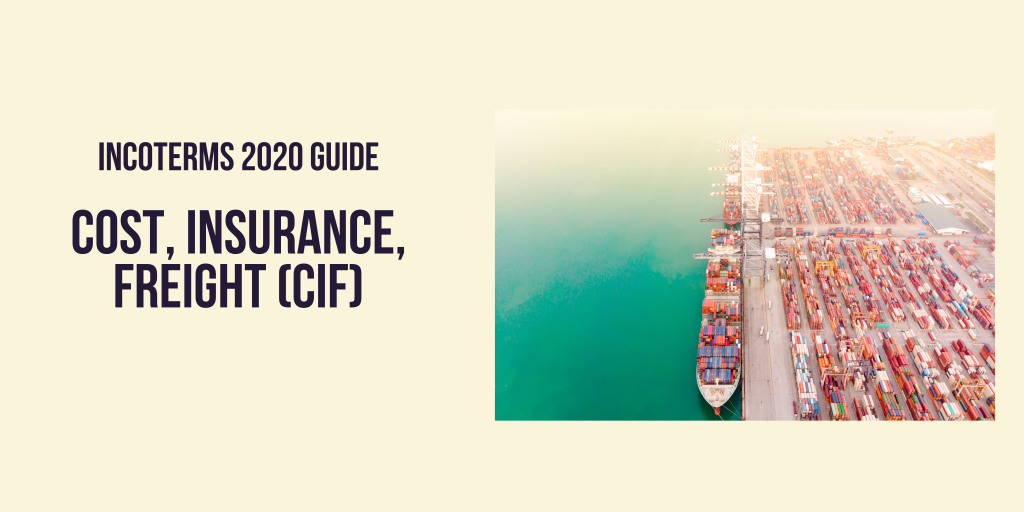The International Chamber of Commerce (ICC) has established Incoterms, or international commercial terms, to make global trade simpler. These universally acknowledged guidelines define the responsibilities of both buyers and sellers in international trade contracts and business deals. While some of these terms are applicable to all transport modes, others are exclusively for waterway shipments.
What is Cost, Insurance, Freight (CIF)?
CIF is specifically designed for goods transported via waterway, sea or ocean and is not intended for air, land transportation, or for containerized goods. It is usually used when exporters have direct access to ships. The seller is responsible for delivering the goods to a ship and loading them onto the ship at the port specified on the contract. Moreover, the seller must provide insurance coverage for the shipment until it reaches the port of destination and pay for all freight costs. CIF is usually used for bulk cargo, oversized or overweight shipments. CIF is similar to CIP (Carriage and Insurance Paid To) but CIF is restricted to waterway and sea transport, while CIP can be used for any mode of transport or especially if goods are containerized.
Responsibilities
Seller
- Acquiring licenses for exportation of products
- Conducting product inspections
- Costs associated with shipping and loading goods at the seller’s port
- Packaging expenses related to export
- Expenses for customs, duties, and export taxes
- Expense of transporting the cargo by sea from the seller’s post to the destination port of the buyer
- Cost of insuring the cargo until it reaches the destination port
- Responsibility for damages or loss to the goods
- The seller must transport the goods to the ship within the agreed period and give proof of delivery and unloading.
Buyer
When the goods arrive at the destination port of the buyer, responsibilities shift to the buyer who has to deal with expenses related to importing and distributing the goods.
- Offloading the goods at the terminal of the port.
- Moving the goods within the terminal to the delivery location.
- Customs duties and other costs connected to the importation of the goods.
- Fees for transport, offloading, and delivering the goods to the final location.
When to use CIF
Since the buyer takes on responsibility only after the cargo is on the ship, a CIF contract is not ideal for all waterway shipments, like containerized cargo shipments for example; in fact, in this case the goods might remain in a container at the seller’s port for an extended period before getting loaded onto the ship. With CIF, this would be risky for the buyer because the goods wouldn’t be insured during this waiting period.
On the other hand, CIF can be a solution for buyers who don’t want the hassle of obtaining insurance, paying freight expenses, and assuming all of the responsibility for shipping globally.




